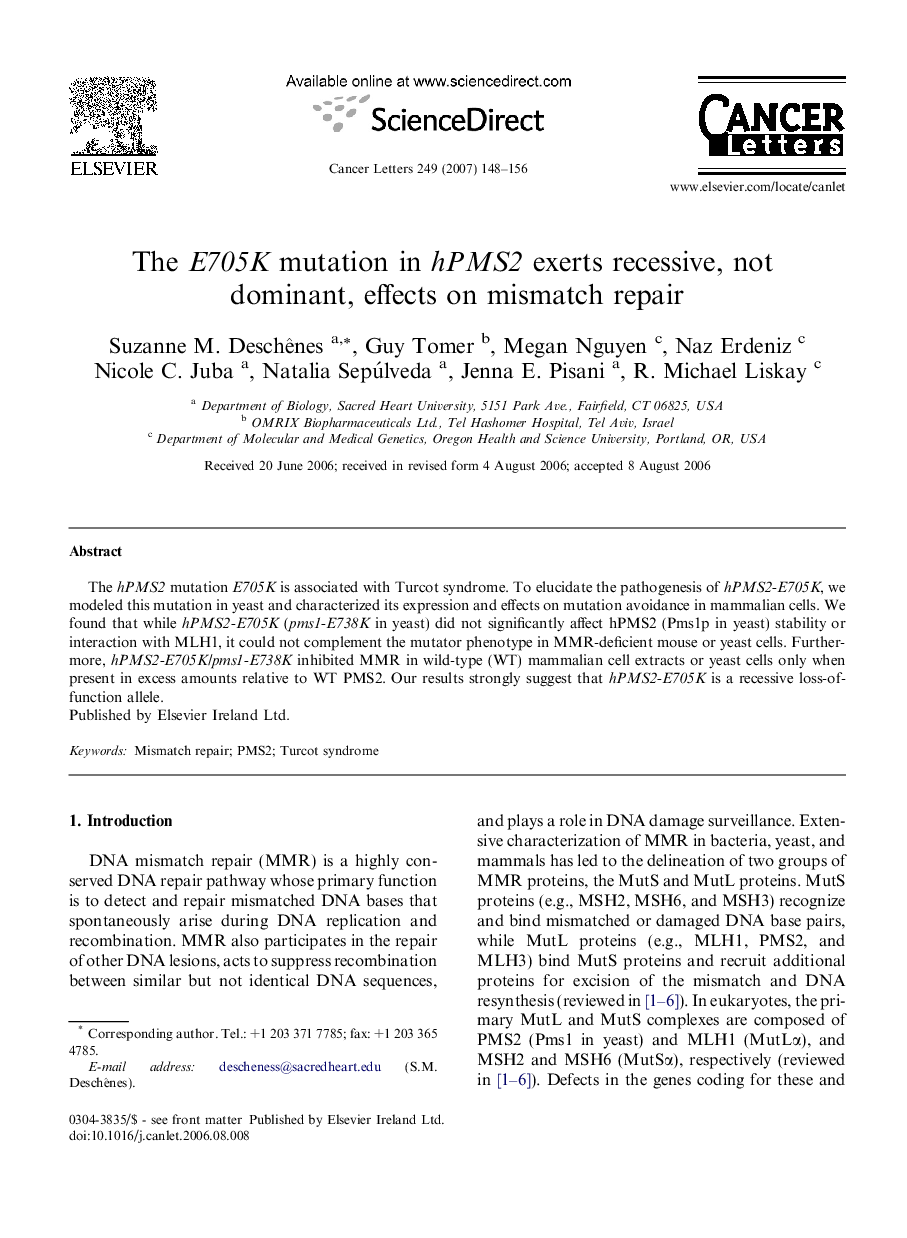| Article ID | Journal | Published Year | Pages | File Type |
|---|---|---|---|---|
| 2115401 | Cancer Letters | 2007 | 9 Pages |
Abstract
The hPMS2 mutation E705K is associated with Turcot syndrome. To elucidate the pathogenesis of hPMS2-E705K, we modeled this mutation in yeast and characterized its expression and effects on mutation avoidance in mammalian cells. We found that while hPMS2-E705K (pms1-E738K in yeast) did not significantly affect hPMS2 (Pms1p in yeast) stability or interaction with MLH1, it could not complement the mutator phenotype in MMR-deficient mouse or yeast cells. Furthermore, hPMS2-E705K/pms1-E738K inhibited MMR in wild-type (WT) mammalian cell extracts or yeast cells only when present in excess amounts relative to WT PMS2. Our results strongly suggest that hPMS2-E705K is a recessive loss-of-function allele.
Keywords
Related Topics
Life Sciences
Biochemistry, Genetics and Molecular Biology
Cancer Research
Authors
Suzanne M. Deschênes, Guy Tomer, Megan Nguyen, Naz Erdeniz, Nicole C. Juba, Natalia Sepúlveda, Jenna E. Pisani, R. Michael Liskay,
